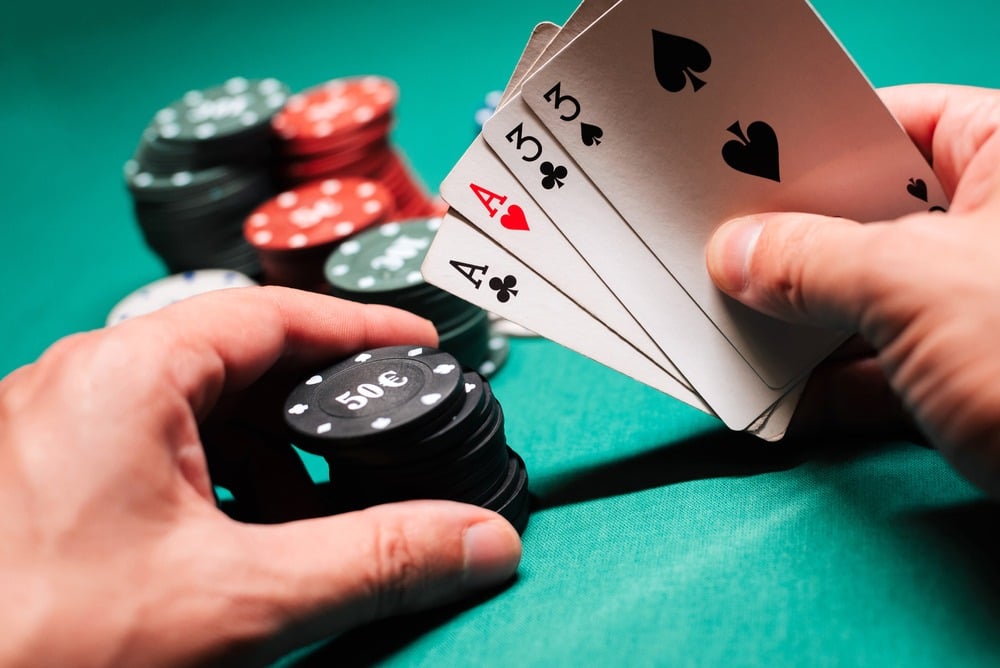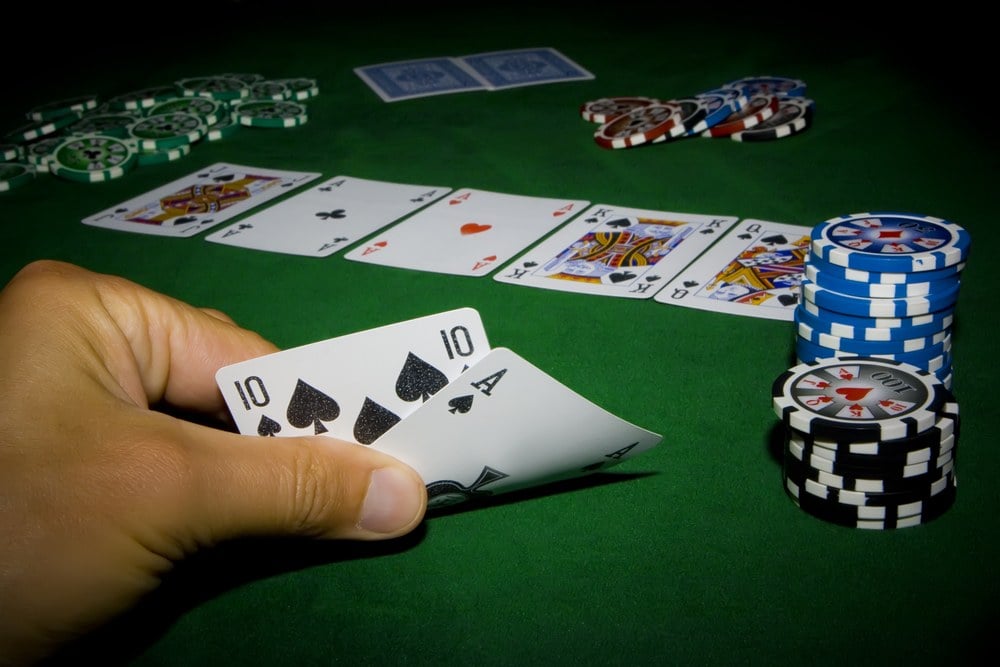Understanding Poker Tournaments: The Essential Beginner’s Guide

Introduction: Why Poker Tournaments Are So Popular
Poker tournaments stand apart from cash games due to the excitement, unique strategy, and potential for massive payouts, even for small buy-ins. While cash games offer steady gameplay, tournaments can turn a small entry fee into a life-changing win. Consider the story of Chris Moneymaker, who famously transformed a modest satellite entry into millions, inspiring countless others to chase the thrill of tournament poker.
Fun fact: During my first tournament, a $120 investment netted me over $2,000 after surpassing 90 competitors. Victory can happen, even for newcomers!

Image Credit: Vlad Ispas/Shutterstock
Core Components of Poker Tournaments
Before diving in, it’s crucial to understand the basic mechanics that define tournament play:
- All participants pay a fixed entry fee (buy-in), which forms the prize pool.
- Each player begins with the same number of chips; these chips do not directly represent cash value.
- Blinds (forced minimum bets) increase at regular intervals, adding pressure and urgency as the tournament progresses.
- Play continues until one player has all of the chips, and only the top finishers claim a share of the prize pool-usually 10-15% of all entrants.
Key Differences: Tournaments Versus Cash Games
Poker tournaments and cash games require distinct strategies:
- Cash Games: Players may come and go freely, exchanging chips for real cash at face value. Mistakes are often recoverable since it’s possible to buy more chips and continue.
- Tournaments: Once you lose your chips, you’re eliminated. Prizes are allocated based on finishing position-not chip value. Outlasting the competition and surviving as the field shrinks is the ultimate goal.
Types of Poker Tournaments to Know
A wide array of tournament formats exists, particularly online:
- Freezeouts: No re-entries are allowed. When you’re out of chips, your tournament is over.
- Turbo & Hyper-Turbo: Blinds increase rapidly, accelerating the pace and introducing more unpredictability.
- Bounty Tournaments: Earn extra rewards by eliminating opponents.
- Mystery Bounty: Receive a random, potentially major payout for each elimination.
Most casino tournaments last from 5 to 7 hours, while large series like the World Series of Poker can stretch across multiple days. The structure-fast or slow-directly influences the role of luck versus skill and the strategies you’ll employ.
- Faster events increase luck and variance.
- Slower formats tend to favor experienced and strategic players.
Understanding Tournament Structures and Blinds
The relentless rise of blinds shapes every poker tournament. Here’s how it works:

Image Credit: Vlad Ispas/Shutterstock
Blinds start low and increase at scheduled intervals (“levels”), typically every 10 to 60 minutes, depending on the format. In fast-paced turbos, higher blinds force players to risk their stacks more often, making patience less of a virtue.
Here’s how blind levels influence decision-making:
- If you hold 250,000 chips and the blinds are 2,500/5,000, you have 50 big blinds-a comfortable position. You can avoid unnecessary all-ins and wait for premium hands.
- If blinds are 25,000/50,000 with the same stack, you have just 5 big blinds. Here, marginal hands may be worth shoving since time is running out before the blinds eat away your stack.
As blinds rise, your required level of risk increases. A move that’s reckless at one stage may be necessary at another.
Chips and Buy-Ins: How They Work
- Tournament Chips: Used solely for gameplay; they do not have direct cash value. Their purpose is to help you advance and dominate other players without any participant having a monetary edge.
- Buy-Ins: The entry fee from each player combines to create the prize pool, with a small portion typically reserved as a fee for the house or casino.
Every competitor starts equally-no one can bring more chips to the table, ensuring a level playing field.

Image Credit: Vlad Ispas/Shutterstock
Payout Structures and The Path to Victory
How Winnings Are Distributed
Prize money is shared among the top finishers, usually the top 10-15% depending on the total field. The biggest share goes to first place, with gradually smaller amounts awarded down the payout ladder.
Adapting Strategy Through Tournament Stages
- Early Stage: Play conservatively and prioritize building your stack.
- Mid Stage: As the payout “bubble” approaches, play tight and avoid unnecessary risks.
- Late Stage: Use your position and chip stack to pressure opponents who are clinging to survival.
The ideal strategy depends on the specific format and structure, so stay adaptive.
What Happens When You Win a Tournament?
Emerging victorious is not just about the financial reward-it’s about the prestige. Sometimes, players left at the final table may agree to split the remaining prize money (“chop” the pot), either evenly or proportionally using the Independent Chip Model (ICM) based on stack sizes.
You’re not obligated to agree to a chop. Use negotiation to your advantage, especially when you have a large stack or strong position.

Image Credit: Vlad Ispas/Shutterstock
- Many choose to chop due to fatigue, lack of heads-up experience, or poor negotiation skills. Don’t let group pressure make your decision-agree to a deal only if it genuinely benefits you.
Remember, any player can veto a deal. Poker negotiations can be as competitive as the hands themselves.
Online Versus Live Poker Tournaments: What to Expect
Major Distinctions Between Formats
- Online Tournaments: Offer rapid play (average 90 hands/hour), allow multiple simultaneous games, attract participants from around the globe, and typically feature lower entry costs and fees. Skill level can be higher due to increased volume and competition.
- Live Tournaments: Provide a social setting and the chance to observe physical tells but are limited to one game at a time, often with higher fees and smaller fields.
Online events generally have larger fields and prize pools. Beginners can benefit from affordable online tournaments that offer immense experience quickly.

Image Credit: Vlad Ispas/Shutterstock
Essential Tips for Tournament Beginners
Rules and Poker Etiquette
- Always be respectful to fellow players and dealers.
- Don’t rush your decisions-take the time you need.
- Verbally announce major moves like “all-in” so everyone clearly understands your play.
Foundational Strategies for New Players
- Choose aggression over passivity-short stacks benefit from timely all-ins rather than waiting for premium hands.
- Be acutely aware of your position. Acting later in a round reveals valuable information.
- Consider both your own stack and those of your opponents before deciding whether to call, raise, or fold.
Tracking Your Growth and Improving
Use poker tracking tools for online play, or maintain a written record of results and noteworthy hands for live games. Sharing hands and strategies with experienced friends or submitting them for expert feedback can help you refine your game.
Frequently Asked Questions About Poker Tournaments
Do Participants Use Real Money?
Yes. The buy-in to enter a tournament is paid with real money; however, the chips used during play have no monetary value.
How Are Cards Dealt in Tournaments?
In physical settings, trained dealers shuffle and deal the cards. Online, computer algorithms called random number generators ensure integrity and fairness.
What Are Some Myths About Poker Tournaments?
- Luck dominates tournaments: While luck plays a part, consistent winners rely on superior skill and strategy.
- Large stacks always secure victory: It’s possible to stage comebacks from just a single chip.
- Never refuse a deal: You never have to split the prize or agree to a deal unless it’s in your best interest.
Title Image Credit: Vlad Ispas/Shutterstock













